Industrialization and Immigration
The American Industrial Revolution began in Pawtucket in 1790, with Samuel Slater’s introduction of new manufacturing processes and hydro-power. For the next century, Rhode Island led the way in manufacturing, building hundreds of mills, and introducing new technologies that revolutionized the way industrial goods were produced. Fast forward to 2017, and Rhode Island led the way again — this time in renewable, alternative energy production – with the completion of the nation’s first offshore wind farm near Block Island.
The industrialization of the state brought families from around the world to Rhode Island, along with more activism around labor and voting. Rhode Island workers successfully petitioned the General Assembly for improved working conditions in the state’s many factories and mills. The influx of immigrants also precipitated the Dorr Rebellion of 1842 when immigrant workers, disenfranchised because they did not meet property ownership requirements, came together to change the voting laws. You can learn more about Rhode Island’s part in the Industrial Revolution and Dorr Rebellion from our interactive timeline.
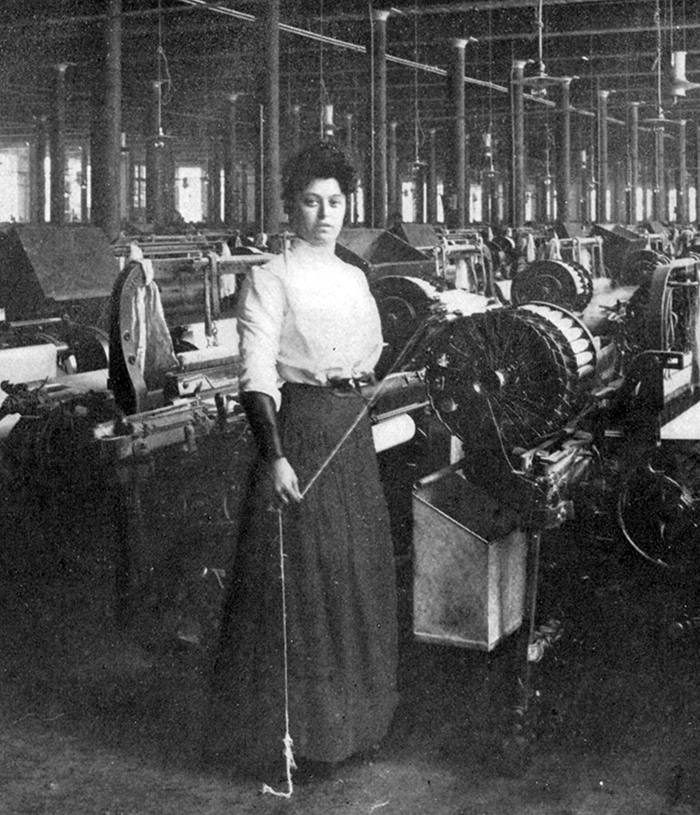
Primary Source Documents
Click on the thumbnails below to zoom in and explore these documents.
-
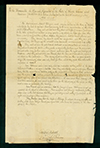
Bristol petition to expand suffrage to non-landowners, 1829
This 1829 petition to expand the right to vote was submitted by residents of Bristol who did not own land and were therefore not permitted to vote. At the writing of this petition, approximately one-half of the white male population was excluded from voting because they did not meet land ownership requirements.
-
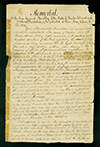
Warren petition to expand suffrage to non-landowners, 1829
This 1829 petition was submitted by landowners and non-landowners in Warren seeking to expand suffrage to Rhode Islanders who did not own land. At the writing of this petition, approximately one-half of the white male population was excluded from voting because they did not meet land ownership requirements.
-

Petition to restrict suffrage to landowners, 1829
Many Rhode Islanders were opposed to expanding the right to vote to non-landowners. In this 1829 petition, the town of Middletown expresses its opposition to expanded suffrage.
-
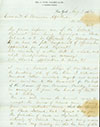
Letter from Walter Taylor to Adj. General Mauran, 1862
At the outbreak of the Civil War, Rhode Island authorized the creation of a regiment of Black men to fight in the war. Men from around New England volunteered to join.
-
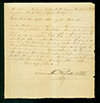
Petition to restrict suffrage to landowners, 1829
Many Rhode Islanders were opposed to expanding the right to vote to non-landowners. In this 1829 petition, the town of North Kingstown expresses its opposition to expanded suffrage.
-
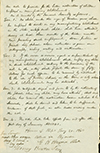
Education act, 1840
This 1840 act required children under age 12 to attend school a minimum of three months per year.
- >
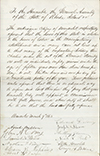
Petition for Labor Commissioner, 1863
This 1863 petition from the citizens of Woonsocket asks the state to appoint a Labor Commissioner to ensure that labor laws, particularly those pertaining to children, are upheld.
-
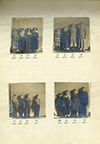
Factory Inspection Report, 1912
Photographs from a 1912 Factory Inspection Report. Many children worked in Rhode Island’s mills, and laws regarding their schooling depended on the child’s age. Factory inspectors reported that it was often difficult to establish children’s ages.
-

Minimum wage petition from hotel workers, 1946
A 1946 petition asking the Department of Labor to raise the minimum wage from 30¢ to 50¢ an hour, and to allow workers to keep gratuities.
Discussion Topics and Classroom Activities
4th grade and up
-
Do you have old mill buildings in your town? What was made in those buildings? Are they used for making things today? If so, what is made there? If not, how are they used? Do you have ideas for how an old mill could be used?
-
Survey your class to learn where your classmates’ ancestors are from. Make a chart or graph showing the results.
6th grade and up
People still petition for changes to the law to improve the lives of working Rhode Islanders. Issues today include paid family leave to care for ill relatives, and an increased minimum wage. Choose one of these issues and research it. Who is in favor of the proposed change? Who is against it? Discuss why each side feels the way it does.
